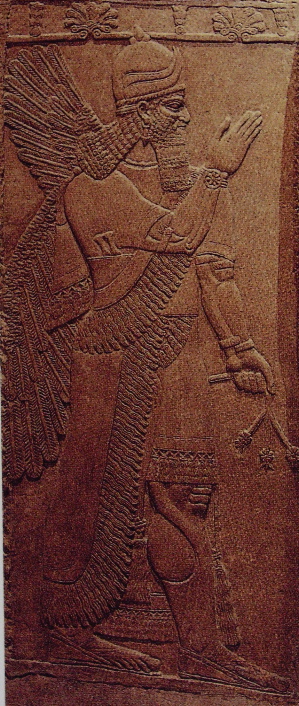The reburial issue can initially be seen as a conflict between Native Americans and archaeologists per se. It is, however, more than that. It is also a broader conflict between how Native Americans feel that their identities (each Native American Nation - and there are 100s - has its own identity, customs, religious rites, cultural history and contact history) have been portrayed and defined by White Western colonial civilisation.
A key figure in this debate is Vine Deloria Jnr, a Native American of the Stonerock Sioux tribe of the Sioux Nation, who has been campaigning against 'anthros' (anthropologists - which includes archaeologists, linguists and biological anthropologists) since the late 1960s. He was trained as a lawyer, and has since become an acknowledged expert in Native American history and cultural life.
Deloria is famous for being one of the pioneers of 'red-power'. Along with the black and hispanic power movements of the 1960s, red-power was part of a broader process of non-white Americans attempting to achieve proper civil rights and respect. In 1969 Deloria wrote Custer Died for Your Sins which set out his initial complaints against anthropologists - whom he calls anthros.
- Anthros look 'objectively' at other societies without ever coming to understand them, which can only be achieved in a subjective experienced way over considerable time.
- The US government does not respect indigenous ways of knowing their past - oral histories, folk histories, revealed religious knowledge - but instead accepts the word of the anthros.
- White Western civilisation - the US government - then takes the word of anthropologists as the truth, rather than that of Indians. Indians are left unable to speak for themselves.
- Anthros present themselves as salvaging lost cultures. They are in fact making their living through their improper portrayal of them.
- Anthros make their money from becoming 'experts' on the culture of another group, when in fact the true experts are the indigenous peoples themselves, who gain no financial benefit from this knowledge. In other words, anthros steal the knowledge of other peoples to make their own money.
Archaeologists do all of these things and more. Archaeologists have represented indigenous societies as essentially lost or vanished). Thgey have then excavated the remains of these 'vanished' societies as though they are fossils of extinct species.
For Deloria, and others, anthropologists must change their ways. They must seek permission from Native American nations prior to doing any research. They should check their findings with these groups, and they should make their research relevant to these groups. Native Americans must benefit directly from research that is based on them. Since the publication of Custer died for your sins, and several later books, it is now common place for anthropologists - prior to doing fieldwork - to ask permission from Native American tribal councils to carry out their research. These councils may place strict conditions on the way that they can conduct their research work. Likewise, archaeologists must take account of the effect of their work upon Native American remains, and avoid doing harm, to these remains at any cost.
The key issue, therefore, is not just about proper treatment of the dead, it is about who has the right to represent the lives of another group, what is the status of knowledge that is either 'scientific' or native, and what is the value of research to the people studied. Control over the bones is just one aspect - although a particularly important one - through which this conflict will be resolved.
Library ResourcesDeloria, V. 1988. Custer Died for Your Sins: an Indian Manifesto. University of Oklahoma Press
Link to the ALGY 399 Sydney Jones Library Reading List.
